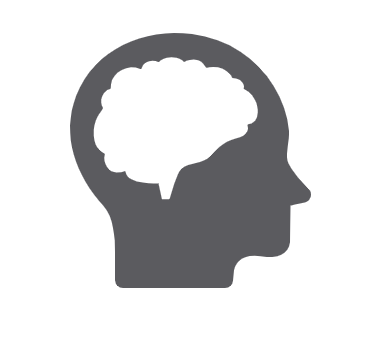
The landscape of mental health treatment is ever-evolving, with researchers and clinicians constantly seeking more effective interventions. Among the most promising developments in recent years is psilocybin therapy for mental health, a treatment approach utilizing a natural psychedelic compound found in certain mushroom species. This article delves deeply into how psilocybin therapy is emerging as a beacon of hope for individuals battling anxiety, obsessive-compulsive disorder (OCD), and depression.
Understanding the Psychedelic Renaissance in Mental Health Dubbed the “psychedelic renaissance,” the current wave of interest in psilocybin and other psychedelics marks a significant shift in psychiatric research. Psilocybin, historically used in spiritual and recreational contexts, is now at the forefront of scientific studies for its therapeutic potentials. For instance, a landmark study published in the Journal of Psychopharmacology in 2020 highlighted the compound’s efficacy in reducing symptoms of depression and anxiety, signaling a major advancement in the field of mental health.
How Psilocybin Works: The Mechanism Behind Its Mental Health Benefits Psilocybin’s primary action mechanism involves stimulating serotonin receptors, particularly the 5-HT2A receptor, in the brain. This activation triggers a series of changes in neural activity, especially in areas like the prefrontal cortex, which governs higher cognitive functions, and the amygdala, which is crucial for emotional processing. These alterations in brain communication patterns can reset or recalibrate neural circuits that have been disrupted in various mental health disorders.
The Role of Psilocybin Therapy in Alleviating Anxiety Anxiety disorders represent a significant challenge in mental health, often requiring a multifaceted treatment approach. Traditional treatments like selective serotonin reuptake inhibitors (SSRIs) and cognitive-behavioral therapy (CBT) can be effective, but they don’t work for everyone. Psilocybin therapy offers an alternative path. In controlled settings, guided psilocybin sessions have shown a remarkable capacity to alleviate anxiety symptoms, with many patients experiencing long-term benefits after just a few treatments. For example, a study led by Dr. John Hopkins revealed substantial reductions in anxiety levels among participants following psilocybin therapy, pointing to the compound’s potential to disrupt entrenched negative thought patterns and facilitate a state of psychological openness.
Psilocybin’s Effectiveness in Treating OCD OCD, characterized by persistent, intrusive thoughts and repetitive behaviors, is notoriously difficult to treat with conventional methods. The rigid thought and behavior patterns in OCD can be effectively interrupted by psilocybin’s cognitive flexibility induction. A Yale University clinical trial found that participants with OCD reported a marked decrease in their symptoms following psilocybin-assisted therapy sessions. This groundbreaking research suggests that psilocybin therapy could revolutionize the approach to treating OCD, providing relief for many who have found little success with traditional therapies.
Combatting Depression with Psilocybin Treatment Depression, with its pervasive impact on mood, cognition, and physical well-being, is a global health concern. The limitations and side effects of standard antidepressants have steered the scientific community towards alternative treatments like psilocybin therapy. Described by many patients as a life-changing experience, psilocybin therapy often provides new perspectives and emotional catharsis, vital in combating depressive states. A comprehensive multi-center study reported long-lasting improvements in depressive symptoms after psilocybin sessions, underscoring the compound’s potential as a powerful tool in the fight against depression.
Real-World Impacts: Patient Testimonials on Psilocybin Therapy The transformative power of psilocybin therapy is best illustrated through the experiences of those who have undergone the treatment. Sarah, a participant in a psilocybin study for depression, shared her journey: “The psilocybin therapy helped me view my life and struggles from a completely new perspective, offering a sort of mental reset that I hadn’t found in other treatments.” Stories like Sarah’s highlight not just the clinical effectiveness of psilocybin but also its profound impact on individual lives.
Navigating Safety and Ethical Considerations in Psilocybin Therapy Despite its promising therapeutic potential, psilocybin is a potent psychoactive substance that must be handled with utmost care. Its use in therapeutic settings requires strict supervision by trained professionals to minimize risks and enhance therapeutic outcomes. Dr. Jane Anderson, a psychiatrist specializing in psychedelic research, emphasizes the need for controlled environments: “To maximize the benefits of psilocybin therapy and ensure patient safety, creating supportive, well-monitored settings is crucial.”
The Legal Landscape of Psilocybin Therapy The legal status of psilocybin as a Schedule I substance in the United States is a contentious issue, particularly given the increasing evidence of its medicinal benefits. Progressive cities like Denver and states like Oregon are leading the way in decriminalizing or legalizing the medicinal use of psilocybin, paving the path for wider acceptance and utilization in therapeutic settings.
The Future of Mental Health Treatment: Psilocybin Therapy’s Potential The exploration of psilocybin therapy in treating mental health conditions like anxiety, OCD, and depression is indicative of a paradigm shift in psychiatric care. As legal frameworks evolve and research continues to substantiate psilocybin’s benefits, this treatment approach could soon become a mainstream option in mental health care. With ongoing scientific rigor and a commitment to ethical practice, psilocybin therapy holds the promise of transforming the lives of millions suffering from mental health disorders.
